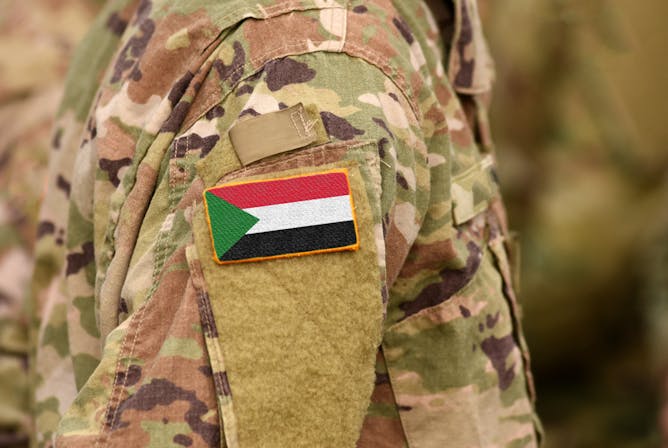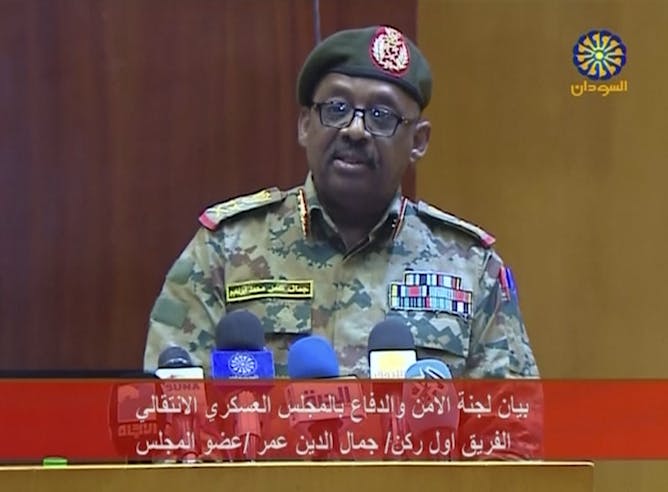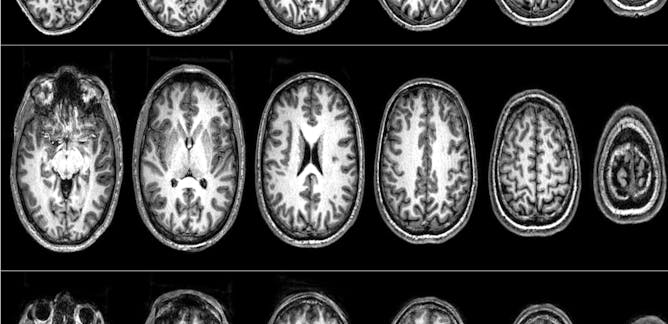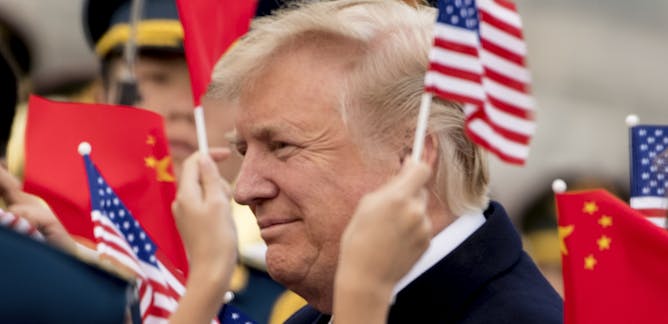|
The Sudanese people were ecstatic when their popular movement dislodged former President Omar al-Bashir from power, and emboldened by a military that offered them support and refuge. But the tide has turned. The situation has turned violent, with the military being accused of gross human rights abuses and Sudan's membership suspended by the African Union as a result. David E Kiwuwa suggests that transitions of this nature are rarely easy, and this one has been made harder by a military that has too much to lose if it relinquishes power to a civilian authority.
Elsewhere, Eric Keels and Joshua Lambert explain what their research on coups around the world tells us about the situation in Sudan.
|

Sudan’s military is working hard to retain control of the country.
Shutterstock
David E Kiwuwa, University of Nottingham
When the establishment retains some leverage over reformers change can be slow, superficial, and short-lived. Sudan appears to be a textbook case of this scenario.
|

In this Sunday, June 9, 2019 frame grab from Sudan TV, Lt. Gen. Jamaleddine Omar, from the ruling military council, speaks on a broadcast.
SUDAN TV via AP
Eric Keels, University of Tennessee; Joshua Lambert, University of Central Florida
History shows that when government elites believe that there is a risk that they may lose control of the capital, they escalate targeted violence against civilians.
|
Science + Technology
|

Nafees Hamid, UCL; Clara Pretus, Autonomous University of Barcelona
The process of radicalisation is a complex system that cannot be reduced to the brain, behaviour, or environment. It exists at the intersection of all these elements.
| |

Julian Kerbis Peterhans, Roosevelt University; Gastone Celesia, Loyola University Chicago
The team found evidence of about 50 lions that had been injured or killed by porcupines since the 17th century.
|
|
|
Politics + Society
|

Frans Viljoen, University of Pretoria
By placing less emphasis on public opinion, and questioning public morality as the basis of its decision, the latest High Court decision shows that times have indeed changed.
| |

Amitrajeet A. Batabyal, Rochester Institute of Technology
Trump may find it harder to maintain support for his escalating tariffs on China if the US economy shows further signs of weakness.
|
|
|
En français
|

Emile Quinet, École des Ponts ParisTech (ENPC)
En théorie, les niveaux de rémunération des joueurs se fixent sur un marché moins opaque que celui des PDG.
| |

Jennifer Kerner, Université Paris Nanterre – Université Paris Lumières
Saviez-vous que notre cousin néandertalien savait fabriquer des outils et même des bijoux ?
|
|
|
En español
|

Rubén Díez García, Universidad Complutense de Madrid
Las protestas de los estudiantes en Berkeley en 1964 tuvieron un impacto determinante sobre las movilizaciones de los estudiantes en países como Francia o Alemania Oriental, e incluso en España.
| |

Rubén Fernández-Alonso, Universidad de Oviedo
La evidencia muestra que cuanto más se implican las familias en la tarea educativa de sus hijos, mejores resultados académicos obtienen estos. Sin embargo, los padres demasiado controladores consiguen todo lo contrario.
|
|
|